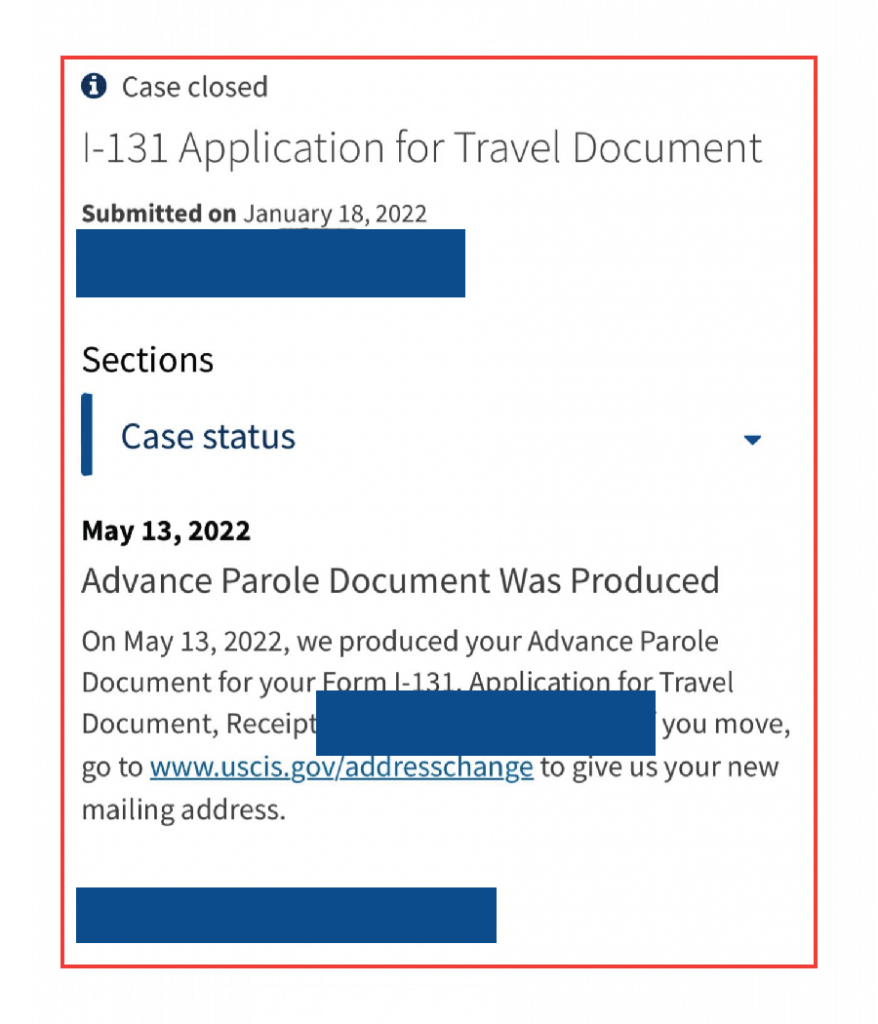While the program Deferred Action for Childhood Arrivals (DACA) offers life-changing-benefits, like a work permit and a social security number, one of the drawbacks of the Obama-era program is that it does not allow recipients to re-enter the country freely if they have traveled abroad. Unless they apply for form I-131, Application for Travel Document, also known as Advance Parole.
Advance Parole, in essence, serves the same purpose as having a visa– it allows re-entry into the United States. This travel document must be requested before leaving the States, and, once approved, it can allow re-entry for upto one year.
Note: Advance Parole does not replace your foreign passport.
Also read: DACA Renewal Checklist
According to preliminary DHS data, by 2017, five years after the program launched, 45,477 DACA recipients had been approved for Advance Parole. That is approximately 6% of the active beneficiaries of the program during that year.
Did you know? One of the benefits of using advance parole is that it allows DACA recipients to receive a legal entry– which is an advantage for those applying for an adjustment of status, as they will be eligible to have their processing done in the States.
The application process usually takes 3 to 5 months and requires applicants to submit proof and reasoning under the following categories:

Humanitarian purposes: this category can be used to visit a relative who is sick or aging, like a grandmother for example. Additionally, one can use the humanitarian path to seek medical assistance (think of dental work), attend funerals and, also other urgent matters related to family. Note: depending on the reasoning, you will need to provide certain documents such as a doctor’s note stating that a relative is sick, or, at times, a death certificate to prove that one will be attending for funeral purposes.
Educational purposes: a few examples that this category can be used for is to study abroad, do school related fellowships, academic research and conferences. Note: for semesters abroad one would need to ensure that they have been previously enrolled and accepted to attend the program.
Employment purposes: similar to the educational route, any traveling required for work-related-purposes can be used to apply for the travel document. Some examples may include overseas assignments, job interviews, conferences, training, and others.Visit USCIS’s website to find the latest form.
* FAQ *
How much does it cost to file for advance parole?
The price to file Form I-131 varies based on age and reasoning. For DACA recipients, the usual cost is $575. You can see the full list of prices here.
Who else can apply for advance parole?
Deferred Action for Childhood Arrivals (DACA) recipients, Temporary Protected Status (TPS) recipients, and adjustment of status and asylum applicants.
Does advance parole guarantee re-entry to the United States?
Travelers returning to the United States are still subject to inspection by US Customs and Border Patrol (CBP) at the port of entry.
We want to make it easier for our audience to understand the U.S. immigration system. If you want to know more about different visa types and immigration terms, please check our library here.










